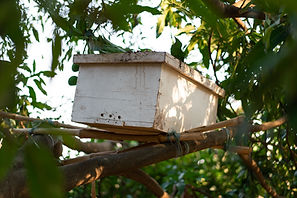Gesundheitsvorsorge





TOBFC arbeitet mit Kommunal- und Bezirksregierungen zusammen, um ländliche Gemeinden mit qualitativ hochwertiger frühkindlicher Bildung zu versorgen.
TOBFC hat 30 Montessori-Kindergärten (jeweils ein „Casa-Klassenzimmer“) eingerichtet und den Bau von 17 Montessori-Schulgebäuden abgeschlossen, für Kinder, die sonst keine „formale“ Bildung hätten. An diesen Schulen sind derzeit über 2.000 Kinder im Montessori-Kindergarten eingeschrieben. Wir statten unsere Schulen jährlich mit neuen Materialien für ihre Casa-Klassenzimmer und Expertenschulungen für die Tansanier aus, die an diesen Schulen unterrichten. Darüber hinaus führt TOBFC Gesundheitsinitiativen für Kinder durch, die in den Schulen registriert sind, darunter Händewaschen, Entwurmung und Anti-Pilz-Kampagnen.
Unser Montessori-Programm ist einzigartig, da es mit jeder Gemeinde zusammenarbeitet, um die Investitionen und Unterstützung der Gemeinde zu fördern und ihren Erfolg sicherzustellen. Um eine Schule in ihrer Gemeinde bauen zu lassen, müssen sich die Leiter einer Gemeinde an TOBFC wenden und eine Anfrage für das Montessori-Programm stellen. Die Gemeinde muss eine erste Struktur und/oder Land bereitstellen, wo TOBFC eine Schule bauen kann. Sobald dies feststeht, ist die Gemeinde dafür verantwortlich, einen Schulausschuss aus Mitgliedern zusammenzustellen. Dieses Komitee wählt dann einen Lehrer aus und entscheidet über den Beitrag der Gemeinde zum Lehrergehalt (1000-3000 TSH/pro Familie). Darüber hinaus trägt die Gemeinde zum Bau der Schule bei, indem sie sich beispielsweise am Bau beteiligt oder daran arbeitet, Materialien für den Bau bereitzustellen. TOBFC deckt alle anderen zusätzlichen Kosten im Zusammenhang mit der Schule, einschließlich des restlichen Lehrergehalts, der Möbel und der Lernmaterialien für die Casa-Klassenzimmer.
community beekeeping groups
Groups that approach TOBFC to receive support through the Sustainable Beekeeping program fit into three different categories. These include:
-
vulnerable women, disabled and older adults and some youth,
all with no beekeeping experience -
beekeepers with some experience using traditional local practices
-
experienced beekeepers that require minimal support
The program support is tiered to match the level of assistance each group requires.

Examples of people in the first category include single mothers, older women caring for their grandchildren, women with no farmland, and youth with no farmland who have not finished secondary school. These groups receive the most training and support from our TOBFC staff apiarist. Each group receives a complete beekeeping kit that includes a bee suit, large protective boots, gloves, cleaning and opening tools for the hives, and a smoker. They are also provided with beehives. They learn how to care for bees and harvest honey and wax from the beehives.
Groups that follow local practices usually require some beekeeping supplies but not a full kit. Our TOBFC apiarist assists groups in this second category, including formally registering with the government as an income-generating group as required by law.
Beekeeping groups in the third category usually have most of the equipment they require but TOBFC will supplement any missing elements. These beekeepers have formally registered with the government in most cases.
education, support, and connections
All beekeeping groups learn about marketing, environmental issues, basic financial literacy, efficient business techniques, and savings and household financial management. This ensures that all participants receive the necessary skills training to support their success.
Our staff apiarist provides ongoing support to the participating groups. This includes assistance to harvest all of the beehives. TOBFC also helps the groups connect to markets to sell their honey. TOBFC is hoping to purchase equipment in 2025 to grade the honey produced through this program, which will enhance the value of the production. Currently, TOBFC is working with the District Bee Specialist on establishing a beekeepers’ association.
By joining our Sustainable Beekeeping program, groups interested in or already practising beekeeping receive formalized expert assistance in ethical beekeeping practises that support long-term success. They also connect with a thriving community where they benefit from shared experiences and an active support network.
As a key part of our Climate Care initiatives, our Sustainable Beekeeping program provides targeted climate action while addressing gender equity, support for vulnerable women, and income security.




